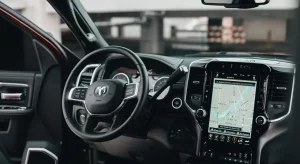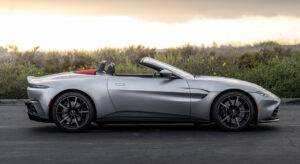Deciding to buy yourself a camper is the first step in a very exciting adventure. Motorhomes and travel trailers provide a safe way to enjoy the outdoors while bringing along the comfort of the modern world.
When you purchase yourself an RV, you purchase the open road. You buy yourself unfettered access to the great outdoors, endless adventures, and memories that will last you, your friends, and your family a lifetime. Not bad, huh?
But hold on there bud! Don’t go rushing to your nearest RV dealership and buy the first camper that catches your eye.
There’s a lot to learn about the many varieties of recreational vehicles, and more than a few important decisions you need to make before you get to the dealership. Arm yourself with the following knowledge to ensure the camper you buy is perfect for your lifestyle.
Decisions to Make
Knowing what you need and desire out of a camper will help to streamline the notoriously long and potentially stressful process of purchasing an RV. There’s no point touring a camper that you know won’t work for your travel style, right?
Keep in mind that needs and desires are not equal. Features that your RV needs will keep you safe, comfortable, and healthy while you travel and adventure in your camper. Features that you desire in an RV are the luxurious features that elevate a normal camping trip into a full-blown glamping trip.
My classic example of a feature that is a desire and not a need is built-in Bluetooth speakers. They’re great to have around, but your health and safety will not be at risk without them.
So, give the following topics some careful consideration before heading out to tour RVs at the dealership or from a private seller.
Budget
Budget will be the most significant limiting factor while shopping for a camper. Sure we might all want the newest model campervan with all the bells and whistles, but most of us don’t have the money (~$50,000) to splurge on this kind of toy.
So, decide how much money you are comfortable spending on a recreational vehicle. If you have a significant other, ask them what they had in mind for your budget.
Showing up to the dealership with a set budget will prevent the heartbreaking situation of touring a camper and absolutely falling in love with it only to realize it is waaaay out of your budget.
Amenities
Some people want to have all of their favorite modern comforts while camping. Microwave, air conditioning, hair dryer, the works.
Others are fine with a spartan approach to RV life. These types will mostly be using their RV as a protected bed to sleep in and not much more.
Give some thought as to where you fall on this spectrum. Maybe even make a list of all of your must-have amenities and the amenities that you certainly want but can live without. In the right hands, a physical list written on paper can even be used as an effective haggling tool against tough RV salespeople.
Travel
Where will you be traveling to in your new-to-you camper? Will you primarily stay in RV parks? Or does the call of the wild inspire you to drive deep into the backcountry?
Are you a fair-weather camper who will mostly be using your camper in spring and summer? Or is this camper going to be your crash pad for epic ski weekends in the mountains all winter?
All these questions are crucial to consider, as they will help you form a clear idea of what you need out of your camper. Those of you hoping to roam deep onto backcountry roads should consider buying a lightweight and rugged trailer with 4×4 capabilities or explore options from truck camper manufacturers.
If your ideal camping trip is at a beachside RV park with the extended family, you’ll almost certainly want to look into a large fifth-wheel trailer or motorhome with slide-outs. These large and roomy campers are popular amongst folks who live in their RV full time and like to host family for vacations.
Motorhome vs Travel Trailer
Now that you’ve given the above questions some thought, let’s move on to the big question: should you buy a motorhome or durable travel trailer?
Both types of RVs have their own unique sets of perks and drawbacks. There is no “better” type of RV, because all RVers have unique preferences in camper type. A motorhome that is someone’s absolute dream rig could be a hassle and burden to an RVer who prefers trailers.
As you continue on this journey, you’ll discover that your particular flavor of RV is wholly unique to you.
Now, let’s explore the types of RVs that are out there on the market.
Motorhomes
A motorhome is a self-propelled recreational vehicle that does not require a tow vehicle to move. Motorhomes come in many shapes and sizes and are categorized into different classes based on their size.
Class A
Popular amongst full time RVers and retired folks, Class A motorhomes are both spacious and luxurious. They are extremely large and oftentimes have a similar shape to a city bus. Some Class As are so heavy and large that they require a special driver’s license to drive.
Class B
Confusingly, Class B motorhomes are the smallest type of motorhome on the market. Smaller than both Class A and Class C RVs, these little campers are sometimes called low-profile motorhomes. With the rise of the #vanlife movement, in recent years Class B motorhomes have absolutely skyrocketed in popularity.
Class C
Class Cs are a great option for first-time RV owners that are interested in a motorhome. In terms of size, they split the difference between a Class A and a Class B motorhome, offering enough space for a medium-sized family without breaking the bank.
The easiest way to identify if an RV is a Class C motorhome is by looking for the above-cab sleeping berth, a feature on almost all Class Cs.
Perks and drawbacks
Motorhomes are great for those who do not like towing trailers. They are convenient vehicle/camper hybrids that are comfortable to drive and leave you with one less thing to worry about as you travel. Roomy and spacious, motorhomes are ideal for anyone looking for a camper with a highly livable interior.
But this convenient package comes at a price. A motorhome is almost guaranteed to cost more than a trailer of comparable size.
The extra costs don’t disappear once you’ve purchased a motorhome either. Because of the engine and all of the moving parts contained within a motorhome, the overall insurance and maintenance costs are more than that of a travel trailer.
Travel Trailers
A travel trailer is an RV that does not have a motor or any of the parts required to make it self-propelled. Camper trailers must be towed by a secondary vehicle in order to move. The largest trailers on the market come as large as a Class A motorhome, while the smallest trailers are just big enough to fit a bed and some storage.
Fifth wheel
Fifth-wheel trailers are the largest towable trailers on the market. They require a special hook-up that is mounted in the bed of a large pickup truck and resemble Class A motorhomes in shape, size, and luxuriousness.
Travel Trailer
While most towable camper trailers are colloquially referred to as “travel trailers”, these medium-sized trailers officially hold the title. Travel trailers are popular amongst families with children, and full-time RVers. They are large enough to accommodate 4-5 people and gear without being so heavy as to require a fifth-wheel hitch or massive turbo-diesel truck for towing.
Lightweight
Lightweight trailers are my personal favorite type of camper trailer. They come in all sorts of convenient shapes and sizes and can be towed by a large variety of vehicles. These trailers are perfect for solo adventurers or couples without kids.
It’s not uncommon to see crafty, outdoorsy types buying old lightweight trailers to use as refurbishing projects.
Expandable/Pop-up
These dynamic campers are the transformers of the trailer world. Aerodynamic and maneuverable while collapsed, pop-up trailers are convenient to hitch up and tow to your campsite. Once parked, they expand into large, comfortable living spaces with the ability to accommodate 3-4 people.
Teardrop
Teardrop trailers are delightful. They are just big enough to house a bed, some storage for gear, and an optional kitchenette in the rear. Their extra-small size makes them ideal for towing on rough 4×4 roads deep into the backcountry.
While many companies manufacture teardrop trailers, it’s not uncommon to see DIY builds being driven on highways all across America.
Perks and Drawbacks
Most RVers who travel and live in trailers love the ability to unhitch the camper and use their tow vehicle to run errands and go on mini adventures. This is a major advantage if you find yourself needing to travel somewhere outside of walking distance once camp has been set up.
The initial purchase price, insurance costs, and frequency of maintenance will typically be lower for a trailer compared to a motorhome. This sounds great until you consider the potential need for a vehicle upgrade in order to tow your camper. Trailers are heavy and most models require a powerful SUV or truck to be towed.
If you are currently rockin’ a Subaru Outback and want to buy a travel trailer, you are going to have to either trade the Outback in for something more powerful, or purchase and insure a second vehicle.
Who to Buy From
When pursuing the purchase of a camper, you’ll have two options to buy from a dealership or a private seller.
Private Sale
Private sales are favored by RVers on a budget. Peruse any vehicle classifieds or online marketplace and you’re going to see an abundance of campers for sale. Whether you are looking for big, small, old, or new(ish), you should have no trouble finding a great deal on a used trailer.
But watch out! While there’s plenty of opportunities to score a great deal on a trailer from a private seller, there’s also plenty of opportunity for that private seller to pull a fast one on you. If you are considering buying a used RV, it is absolutely crucial that you perform a multi-point inspection on the rig before you buy.
RV’s have a lot of components and systems. Without an in-depth inspection, you will have no way of knowing for certain that each of these components is in working order. If you don’t trust yourself to perform a thorough inspection on a rig, hire a professional RV inspector.
Dealership
Buying a camper from a dealership may come at a higher price but you’ll be buying yourself some peace of mind as well. When you buy off the lot, you know that the RV has been inspected, maintained, and detailed by professional RV technicians. This significantly decreases the chances of being sold a lemon, especially if you buy from a highly reputable dealership
Dealers will also typically offer to throw in a dealership warranty in an attempt to sweeten the deal. Warranties are great, but don’t jump on the first offer of a warranty that you get. Read the fine print. Many dealership warranties do not offer priority appointments for warrantied repairs, and it may take weeks or months to get your camper into the shop.
What’s Right for You?
In the end, you’re the only person who will know exactly what camper best fits your lifestyle. Recreational vehicles are large financial investments and should not be bought without dutiful research and planning. You’re already on the right track by having read this article.
Continue doing research and once you think you have a pretty solid idea of what kind of camper you want, start touring different rigs. Ask friends that own RVs what they like and don’t like about their camper. Rent an RV for a weekend to assess if the style of RV you’re considering will actually fit your travel style.
Whatever it takes, make sure that when you pull the trigger and sign the dotted line, you know that you’ll be driving away with the camper of your dreams.
Happy camping!
Discover more from Locar Deals
Subscribe to get the latest posts to your email.





